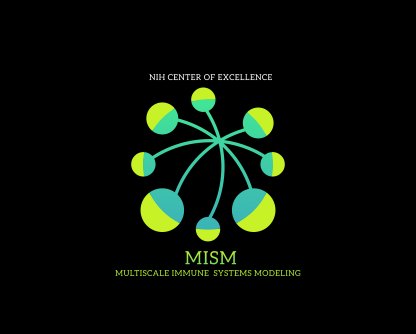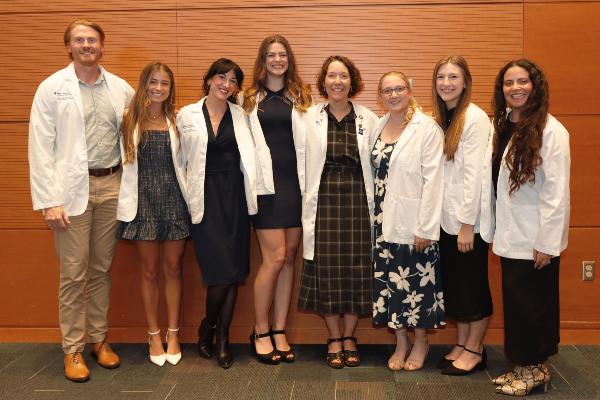A New Hub for Fighting Infectious Diseases with Smarter Models
Duke University School of Medicine researchers will launch a new national Center of Excellence for Multiscale Immune Systems Modeling (MISM), funded by a U54 grant from the National Institutes of Health.
Duke Physician Assistant Program Celebrates Class of 2026 at White Coat Ceremony
The Duke Physician Assistant Program held its annual White Coat Ceremony on June 27, marking the transition from classroom learning to clinical training for 89 students in the class of 2026.
Watch the 2025 State of the School Address
Dean Mary Klotman, MD, highlighted how the extraordinary ambition and resilience of the Duke Health community illuminate the themes of Duke's MADE FOR THIS campaign in her 2025 State of the School Address.
Helping Teens Navigate their Neighborhoods Led to Health Gains, Duke Study Shows
Durham teens who learned to navigate their city by bus, bike or on foot got more exercise, more independence, and a shot at healthier habits for life.
Neuro-Immune Link Could Shape Brain Development, Study Finds
Long seen as defenders against disease, immune cells in the brain are now emerging as architects of early brain development.
Duke Researchers Explore the Health and Environmental Effects of Microplastics
School of Medicine researchers are among more than 60 at Duke looking for ways to prevent bad effects from plastics that break into microparticles.
Could A Simple Change in Cancer Screening Save More Black Women’s Lives?
Duke researchers found that Black women who had abnormal or inconclusive ultrasound results after postmenopausal bleeding were less likely to receive a biopsy to check for cancer.
Building Better Immunotherapy
Scientists at Duke University School of Medicine are developing a new CAR-T cell therapy that could finally help immunotherapy take aim at solid tumors. Early tests look promising, and it started with one patient’s immune system doing something extraordinary.
PA Program Wellness Garden Nurtures Nature and Community
Students in the physician assistant program planted a pollinator garden as a sanctuary for the Duke community.
2025 Distinguished Service Award: Steven M. Scott, MD, HS’74-'78
Steven M. Scott, MD, HS’74-78, has been named the recipient of the 2025 Distinguished Service Award by the Duke Medical Alumni Association in recognition of his selfless service, steadfast passion for Duke, and transformative contributions to education, college athletics and health care institutions.









